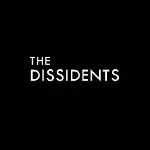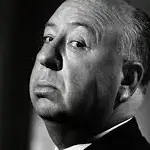
We live in a strange world. Many times, we don't accept reality and get stuck in an ideal we fix in our minds because that's how we believe things should be. Happiness, lies and truth go hand in hand in the complex history of humanity as much as our—sometimes—unstoppable desire to pretend we aren't living what we, ironically, are living. But none of this seems to have applied to the legendary director David Lynch who, in his four-decade career in the audiovisual industry, dedicated himself to depicting all kinds of nightmares, warm and crazy stories and also presenting the best series on this Earth. A full-fledged artist that left this dimension last January 16th and that, today, would have turned 79. This is my brief love letter to him.
And when I refer to "this dimension", I mention it as it is, symbolically, because as many of you can acknowledge, David Lynch was, is and will always be much more than just a name. He's a way of seeing and doing cinema, a subgenre—who has never said "that film has something Lynchian about it"?—a way of expressing the deepest fears through art, radicalism and expressionism to the highest extent and also the person who decided to break all established rules of cinema at the time with such an unprecedented debut as Eraserhead (1977), probably one of the most insane, unclassifiable and unusual journeys the seventh art could present.

I recently watched a 2007 BAFTA interview in which Lynch declared that such black-and-white debut was the most "spiritual" one of his career. The interviewer David Lean was burning with curiosity, and immediately tried to satisfy it by asking "elaborate on that," to which the director answered with a sharp "no." He always wanted people to feel his movies and, based on those feelings, absorb them as they pleased instead of understanding them, otherwise, what's the point of cinema? And there lies most of his vision. Despite the twisted dark tone of his films, Lynch was a warm person who fully believed in kindness as an irreplaceable tool for happiness. This is completely reflected exploiting its full potential with the introduction and complete character arc of Twin Peaks' charismatic Dale Cooper, probably one of the most memorable characters of his entire filmography.
But in Eraserhead, unlike what followed, the scarce warmth is seen through a dirty lens, complemented with a tremendously grim and depressive score constantly playing in the background. So, why did David say that? What did he mean by calling it his most "spiritual" movie? Before trying to answer this, I first think it's important to define what spirituality is. There are many answers depending on the social, religious and even ideological context but, in simple terms, it can be defined as the result given by connecting the soul and body of a person. During the beginning of his first nightmare's production, Lynch had begun his spiritual journey by practicing transcendental meditation. In addition, when his oldest daughter was three years old at the time, the director also captured his most primitive fears as a first-time father, but he also visually evoked his past: his childhood in a decaying Philadelphia neighborhood inspired the aesthetic packed with loneliness and decay his first movie is characterized by.

Even though Eraserhead's story is known worldwide, I think it's worth explaining it, at least, one more time. Henry Spencer—Jack Nance playing the role of his lifetime—is a typographer at a factory located in a completely desolate industrial area with an extremely monotonous life—one could even call it a living death. So far, nothing groundbreaking nor new. His girlfriend, Mary, introduces him to her family in one of the most awkward presentations in cinema history. Mary's mother informs Henry that Mary is pregnant and he has to take responsibility. Mary's mother and father show clear signs of mental imbalances—like everyone in this cult classic—but, in addition, the mother makes sexual advances toward Henry. Or is Henry imagining everything as a result of the unexpected news? Lynch revealed his most perturbing side early on, one he would later expand in unforgettable scenes like the first introduction of the mysterious man in Lost Highway or the best jump scare in history with the dream revelation in Mulholland Drive.
What are nightmares but fears reflected in a reality that may not exist yet? Until his last day, Lynch never tried to explain Eraserhead nor suggested anything about it, since he firmly believed that the true power of cinema lied in the subjectivity of the message people could assimilate from the film. In a nutshell, as an author and also as a viewer, he understood everything perfectly.
Posted on JANUARY 28, 2024, 01:12 AM | UTC-GMT -3
If you liked this article remember to give it a 👉 LIKE, put it in your FAVORITES, COMMENT 🗣️ , and FOLLOW ME for more movie and series content 📽




















































View replies 0